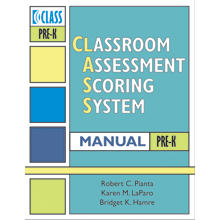
DEAR MISS MATTERS:
I work with preschool classes in tribal areas. I regularly use the CLASS observation tool, but I’m worried about scoring Positive Climate while being culturally sensitive. If teachers and children are not making eye contact, would this lower the PC score?

GENTLE READER:
Oh, if only Miss Matters had a dollar for every time she heard this question, she would be able to retire!
The CLASS is not intended as a measure of cultural sensitivity. Yet we know that the CLASS measure has been validated in classrooms where diverse cultures are represented. We also know that multiple studies suggest that children benefit from high-quality CLASS interactions, regardless of race or ethnicity.
The key here is in understanding what behaviors are respectful. In some cultures, forcing eye contact would be uncomfortable for a child and would not be demonstrating respect. But eye contact is only one of several markers of respect and it is not required for a teacher to demonstrate respect. The CLASS manual offers several additional markers of respect including using a warm, calm voice and using respectful language. The presence of these other markers would allow a teacher to receive a high rating in Positive Climate if eye contact were not a cultural norm. Note, however, that if the teacher forced eye contact in this case, they may receive a lower rating in Teacher Sensitivity.
Happy Coding!

